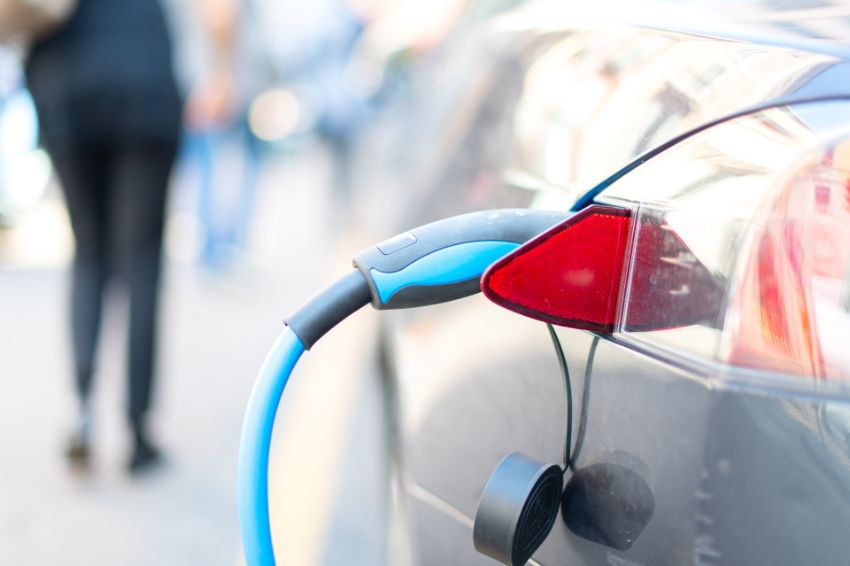It is true that 2023 began for the solar market with some concerns about consumer reaction regarding the start of Fio B charging.
Although this topic really requires extra attention when formulating sales arguments, we cannot fail to recognize and celebrate other advances.
One of these advances that deserves attention is electromobility in Brazil. In 2022, ABVE (Brazilian Electric Vehicle Association) recorded a growth of 43% in sales of electric cars.
This represents a total of 49,245 units, with 8,460 completely electrified car registrations. Today, the total fleet in the country is 126,504 vehicles.
From a global point of view, the consulting company Boston Consulting Group predicts that by 2030 the fleet of plug-in and battery-powered electric vehicles will increase 160 times, reaching around 507 thousand units circulating on streets and roads around the world.
There is no shortage of reasons to believe that 2023 will be even better for electromobility. In this article, I highlight some of the segment's strengths and opportunities for this year.
Factors influencing the growth of electromobility
At the end of 2022, plug-in electric vehicles surpassed 1%'s share of the national vehicle market for the first time. The most impressive thing is that this was achieved without public policies.
Apparently, Brazil has the potential to be a reference in electromobility. According to the most recent bulletin published by the Ministry of Mines and Energy, the global average of renewable sources in the electrical matrix is just 28%, while Brazil has more than 85% of its renewable generation.
Therefore, our electric vehicles have very low CO2 emissions, capable of eliminating the emission of other harmful pollutants for the population.
Considering the importance of the ESG (Environmental, Social and Governance) Agenda, electric cars should gain prominence in the coming years.
In addition to the environmental impact, the savings on electric car maintenance also make it an attractive option for Brazilians. Fueling an electric car can generate savings of 60% in value in reais per kilometer driven, compared to a fossil fuel-powered vehicle. Maintenance presents a cost reduction of, on average, 30%.
There is also the growth of public policies. Several city halls and states already exempt electrified people from paying IPVA and rotation fees, for example.
According to the president of ABVE, Adalberto Maluf, the formation of ministries in the new federal government also demonstrates the objective of seeking more sustainable ways to develop the national industry. This is the case of the Green Economy Secretariat, announced by the Vice-President of the Republic, Geraldo Alckmin.
Increasingly green public transport
Another good news about electromobility is the growth of electric vehicle fleets for public transport.
On February 8, the city of Cascavel (PR) and BRDE (Banco Regional de Desenvolvimento do Extremo Sul) signed a contract that guarantees resources for the acquisition of 15 electric vehicles, which will be supplied by the municipality's own photovoltaic plant.
The plant is the result of an investment of R$ 25 million. It has more than 5 thousand solar panels, occupying an area of around 40 thousand square meters.
In addition to representing innovation in mobility and sustainability, the estimated savings of R$ 260 million in fuel over 25 years should be reversed in a drop in bus fare prices, not to mention a reduction in the operating cost of the system.
Decarbonization is a necessity
A big challenge is to reduce Brazil's demand for ethanol. The world is moving towards the predominance of electric cars, and our market needs to prepare to keep up with the change.
This becomes clear when we look at the example of Europe, which determined the end of sales of combustion cars by 2035.
The US follows a similar path, estimating that by 2030 it will have at least 50% of the electrified market. Around 3% of the global market is already committed to embracing electromobility.
Infrastructure challenges
One reason for the growth of the electric vehicle fleet in the USA was the government's action to promote a public charging structure. Public charging locations are essential for widespread adoption of this innovation.
However, Brazil still has few places for public charging, and most of these chargers are the slow charging type, which can take hours. With consumers accustomed to the reality of gasoline and ethanol, where they can easily find gas stations that take a maximum of 5 minutes to fill up, this transition calls for a lighter adaptation. The market needs to grow in fast and ultra-fast charger options.
Conclusion
Given the opportunities and challenges of electromobility, the expectation is that the Green Economy Secretariat will do significant work in expanding electric vehicles, creating new forms of incentives and making the acquisition and use of EVs less expensive.
On the part of the solar energy market, we need to advance in technologies for increasingly faster and more efficient charging, thus ensuring the best experience for the consumer. May we give due value to this segment with such optimistic and transformative potential.
The opinions and information expressed are the sole responsibility of the author and do not necessarily represent the official position of Canal Solar.

















One Response
Comparing the energy consumption of electric and combustion vehicles (two SUVs), both with 150 hp of power, based on information from manufacturers, the savings to fuel an electric car at R$/km would be much higher than 60%. Combustion vehicle: R$ 0.47/km x Electric vehicle: R$ 0.11/km. See the post on our Instagram: @maisolarenergia.